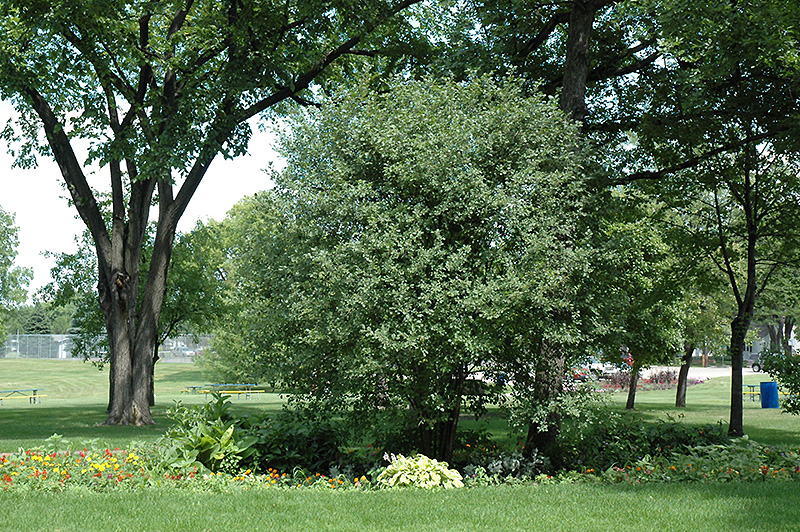Height: 12 feet
Spread: 12 feet
Sunlight:
![]()
![]()
Hardiness Zone: 3a
Other Names: Alder Buckthorn
Description:
A tough and very adaptable tall shrub with limited ornamental characteristics, good background or filler material; seeds prolifically thanks to the birds and will sprout up in the most undesirable places, use with great caution
Ornamental Features
Glossy Buckthorn has dark green deciduous foliage on a plant with an upright spreading habit of growth. The glossy oval leaves turn yellow in fall.
Landscape Attributes
Glossy Buckthorn is a multi-stemmed deciduous shrub with an upright spreading habit of growth. Its average texture blends into the landscape, but can be balanced by one or two finer or coarser trees or shrubs for an effective composition.
This shrub will require occasional maintenance and upkeep, and can be pruned at anytime. Gardeners should be aware of the following characteristic(s) that may warrant special consideration;
- Invasive
Glossy Buckthorn is recommended for the following landscape applications;
- Hedges/Screening
- Naturalizing And Woodland Gardens
Planting & Growing
Glossy Buckthorn will grow to be about 12 feet tall at maturity, with a spread of 12 feet. It tends to be a little leggy, with a typical clearance of 2 feet from the ground, and is suitable for planting under power lines. It grows at a medium rate, and under ideal conditions can be expected to live for 40 years or more.
This shrub does best in full sun to partial shade. It is very adaptable to both dry and moist locations, and should do just fine under average home landscape conditions. It is not particular as to soil type or pH. It is highly tolerant of urban pollution and will even thrive in inner city environments. This species is not originally from North America, and parts of it are known to be toxic to humans and animals, so care should be exercised in planting it around children and pets.

